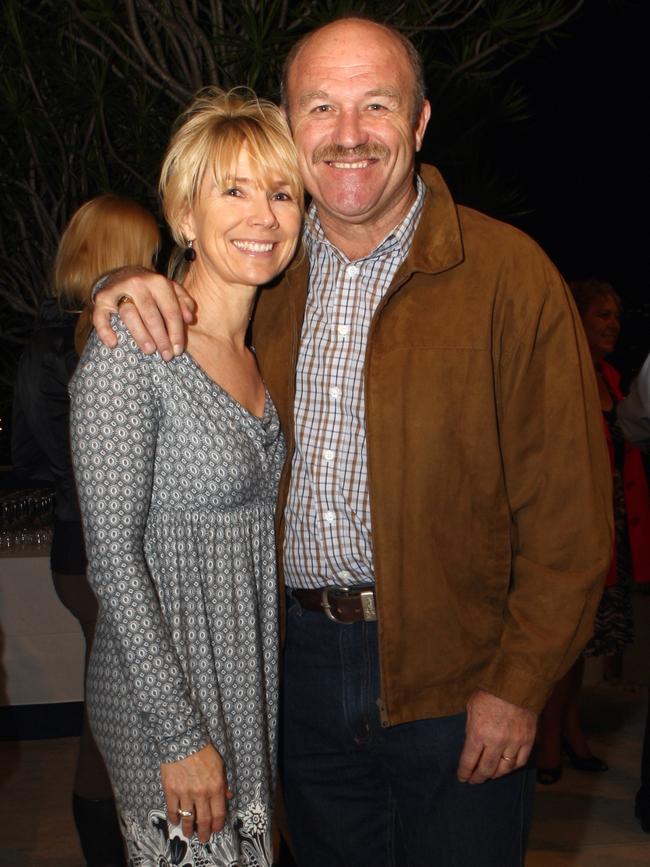Lucy Carne: Australia’s grey divorce rate is rising and leaves many at risk of depression and poverty
The Wally and Jackie Lewis story is far from unique with the vow of Baby Boomers now simply ’til retirement do us part, writes Lucy Carne.
Opinion
Don't miss out on the headlines from Opinion. Followed categories will be added to My News.
“I thought we were in it for the long haul.”
“It’s lonely and the disappointment never leaves you.”
“How can you trust again?”
It does not matter that they face a shorter window of life, the pain of divorce after the age of 60 is deeply hurtful for many.
That was the recurring message in dozens of emails I received last week from women – and men – who, just like Wally and Jackie Lewis, faced separation or divorce after decades of seemingly happy unity.
“Her story is my story,” one woman said of Jackie, whose 36-year marriage to the former rugby league legend made headlines.

Others told of the shock at suddenly finding themselves single and on the pension after assuming they would be together forever.
“I was married to my children’s father for 32 years but during the last two years he had been having a relationship with a work colleague,” Sandra* wrote.
“This a man who treated people well, me well, his children well and was considered a pillar of the community.
“It has taken me at least 10 years to establish another life and to feel okay about being alone.
“It will never be good – just okay.”
Lesley* was married for 31 years. She supported her husband as he flew around the globe for his job.
She had a career and raised their four children.
And then on New Year’s Eve her husband broke the news: “He decided that he was bored and had had enough,” she wrote. “My story is not the only one … I call it ‘The Other Pandemic’.”
You would assume that the longer the marriage, the less hasty a split.
But the steady rise in divorce among marriages that have spanned more than 30 years signifies a potential looming crisis.
The divorce rate among marriages lasting more than three decades has increased from 6.3 per cent in 1999 to 9.9 per cent in 2019. And it seems to no longer be the Shirley Valentine effect of older women walking out on their husbands – 1.9 males per 1000 aged 65 and over were granted a divorce in 2018 compared to 0.9 women of the same age, according to ABS data.
We take it for granted that Baby Boomers will stand by each other. They are now more likely to divorce than their parents (and possibly their adult children whose divorce rate is dropping). But this rise in silver splitters is leaving many older Australians at risk of poverty, loneliness and homelessness.

Women aged 65 to 74 are now our fastest-growing cohort of homeless people. Likewise, men whose marriage ends late in life also face a high risk of depression if socially ostracised or cut off by their children or friends.
Increased longevity, retirement or the decision to keep working, a desire to travel or stay home and empty nests are some of the possible reasons why the grey divorce is on the rise.
“We regularly see people in this age group,” Relationships Australia NSW chief executive Elisabeth Shaw tells me.
“This is a very common life stage to be looking at what the future holds for a couple.
“We often see a couple where one says ‘I think I need to leave’ and the bravery and fear in that statement can drive change – does the past 30 years drive the next 10 years or forge a new pathway together?”
She says that at any age, but particularly if it has been a long relationship, couples should give the decision making process to end a marriage the “respect it deserves”.
“Seek professional assistance to ensure it’s the right decision and let both people settle in their own minds that they’ve done everything they can,” Ms Shaw said.
Blame societal stigma or just a general ignorance, but grey divorce is a desperately under-discussed issue and we must be more open about it.
Certainly more support is needed to help our older generation face this sad reality.
Less time left alive does not mean the pain of divorce is any less – particularly for those unwitting women and men left behind who believed in death do us part.
’Til retirement do they part seems to be their new vow.
*names have been changed.



